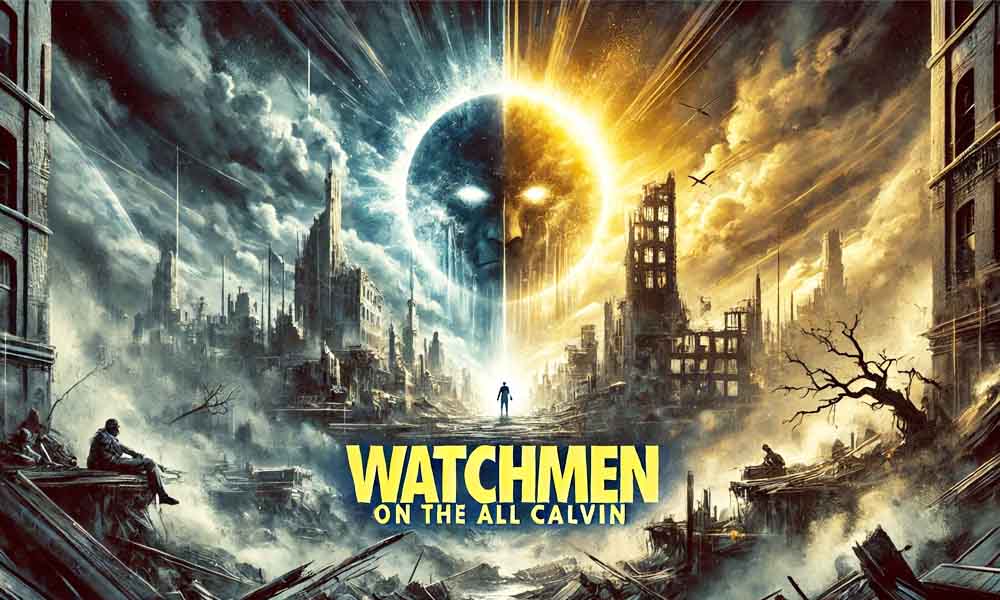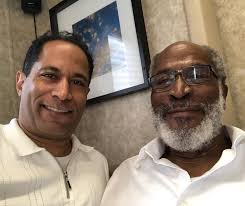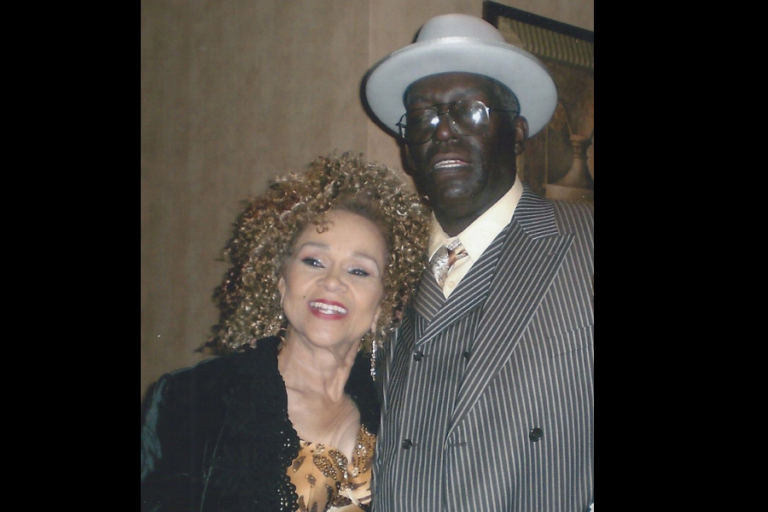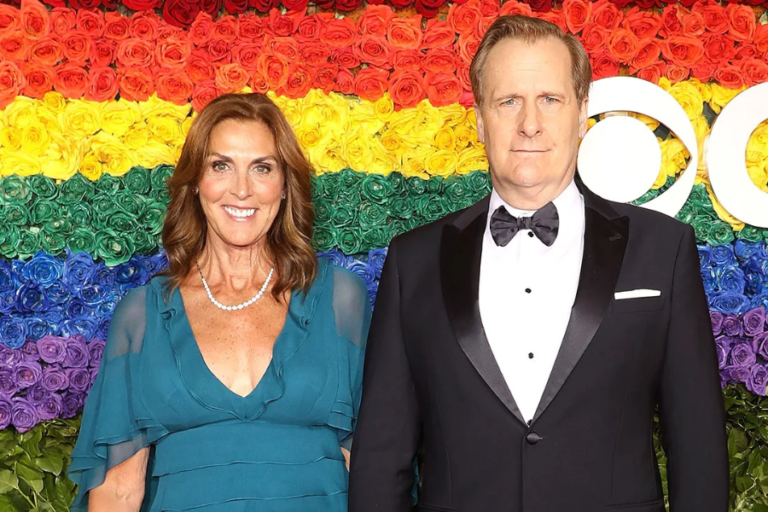Exploring the Depths of Justice in “WatchmenontheAll Calvin”
In a world where the concepts of right and wrong can often feel indistinct, “WatchmenontheAll Calvin” stands out as a compelling exploration of morality, justice, and human nature. This narrative draws readers into a world where heroes aren’t just defined by their actions but also by their internal struggles and philosophical dilemmas. At its core, it challenges traditional notions of justice, prompting readers to reflect not only on the characters’ decisions but on their own beliefs about what is truly just.
A New Perspective
WatchmenontheAll Calvin isn’t your typical superhero story. The characters in this narrative are far from perfect, and that’s what makes them so relatable. In a genre that often glorifies idealized heroes and villains, this work flips the script by presenting flawed individuals whose actions don’t always align with conventional views of good and evil. The line between hero and villain is so blurry that readers might find themselves questioning who they are rooting for—and why.
The novel uses its complex characters to explore deep philosophical and moral questions. What happens when doing the right thing causes more harm than good? How do we define justice when the legal system itself is flawed? Through these questions, WatchmenontheAll Calvin forces readers to rethink their own perspectives on justice and morality.
The Characters
At the heart of WatchmenontheAll Calvin are characters who are anything but typical. They are flawed, conflicted, and constantly struggling with their own sense of right and wrong. These characters are not mere stereotypes—they are human beings who reflect the complexities of real life.
Take Calvin, for example. At first glance, he might appear to be a typical hero: someone with the power to right wrongs and make the world a better place. But as the story unfolds, Calvin’s internal conflict comes to the forefront. He is forced to confront the reality that his actions may not always have the desired effect. His journey is one of self-discovery, as he learns that the path to justice isn’t always clear, and the consequences of his choices are far-reaching.
But it’s not just Calvin who undergoes this transformation. The other characters in the story also wrestle with their own moral dilemmas. Each of them brings a unique perspective to the table, and as they interact with one another, their differing views on justice create tension and complexity. This dynamic between characters is one of the driving forces of the story, making it more than just an action-packed adventure—it’s a deeply philosophical exploration of human nature.
The Story
WatchmenontheAll Calvin is more than just a tale of good versus evil. It’s a narrative that challenges our understanding of right and wrong. As the story unfolds, the lines between hero and villain blur, and readers are faced with difficult questions about morality, justice, and the consequences of their actions.
Throughout the narrative, Calvin and the other characters are forced to make difficult decisions. Sometimes they make the “right” choice, but the results are less than ideal. Other times, they make choices that seem morally questionable, yet lead to positive outcomes. These moral gray areas make the story incredibly thought-provoking, as readers are challenged to consider the complexity of the decisions we make every day.
One of the most compelling aspects of the story is its focus on the human aspect of its characters. They aren’t perfect, and they don’t always make the right decisions. In fact, many of their actions lead to unintended consequences. But it’s through these mistakes and struggles that they begin to understand what justice truly means. It’s not about perfection—it’s about learning from one’s mistakes and striving to do better.
Themes of Morality and Justice
At the heart of WatchmenontheAll Calvin is a deep exploration of justice and morality. The story challenges readers to rethink traditional notions of right and wrong and to consider the complexities of human nature. The characters’ decisions are often driven by their own moral compasses, and as the story progresses, it becomes clear that the concept of justice is not as simple as it might seem.
The novel raises important questions about the justice system. Is it enough to simply punish wrongdoers, or should we also consider the reasons behind their actions? Can justice truly be achieved when the system itself is flawed? These are the kinds of questions that WatchmenontheAll Calvin asks its readers to consider, and the answers aren’t easy.
One of the key themes of the book is the idea of moral relativism—the notion that what is considered “right” or “wrong” can vary depending on one’s perspective. The characters in the story each have their own sense of justice, and their actions reflect the complexity of human morality. As they navigate a world that is far from perfect, they are forced to question their beliefs and confront the difficult realities of life.
Impact on Society
While WatchmenontheAll Calvin is a work of fiction, its themes resonate with real-world issues. In today’s society, the line between right and wrong is often blurred, and individuals are frequently forced to make difficult decisions that have far-reaching consequences. Whether it’s navigating the complexities of the justice system or grappling with the moral implications of our actions, the book’s themes are incredibly relevant to our modern world.
In a time when social justice movements are gaining momentum, WatchmenontheAll Calvin offers a fresh perspective on the fight for justice. It asks its readers to think critically about what justice really means and whether the systems we have in place are truly serving the greater good. The book’s exploration of moral dilemmas and the complexities of human nature makes it an important contribution to the ongoing conversation about justice and fairness in society.
Philosophical Depth
What sets WatchmenontheAll Calvin apart from other narratives is its philosophical depth. The book doesn’t just present a story—it asks questions and challenges readers to think about their own beliefs. It’s a narrative that invites introspection, forcing readers to examine not only the actions of the characters but also their own personal views on morality and justice.
At its core, the story is about the human experience. It’s about the choices we make, the consequences of those choices, and the never-ending struggle to find balance between right and wrong. The philosophical questions raised in the book are timeless, and they continue to resonate with readers long after they’ve finished the final page.
A Story Worth Reading
WatchmenontheAll Calvin is more than just an action-packed adventure—it’s a thought-provoking exploration of justice, morality, and human nature. With its complex characters, intricate plots, and philosophical dilemmas, the book invites readers to question their own beliefs and consider the complexities of the world around them. It’s a narrative that challenges us to think deeply about what it means to be just, and whether true justice can ever be achieved in a world as imperfect as ours.
If you’re looking for a book that will not only entertain you but also make you think, WatchmenontheAll Calvin is definitely worth reading. Its exploration of moral complexity and the nature of justice is sure to leave a lasting impact on anyone who picks it up.






